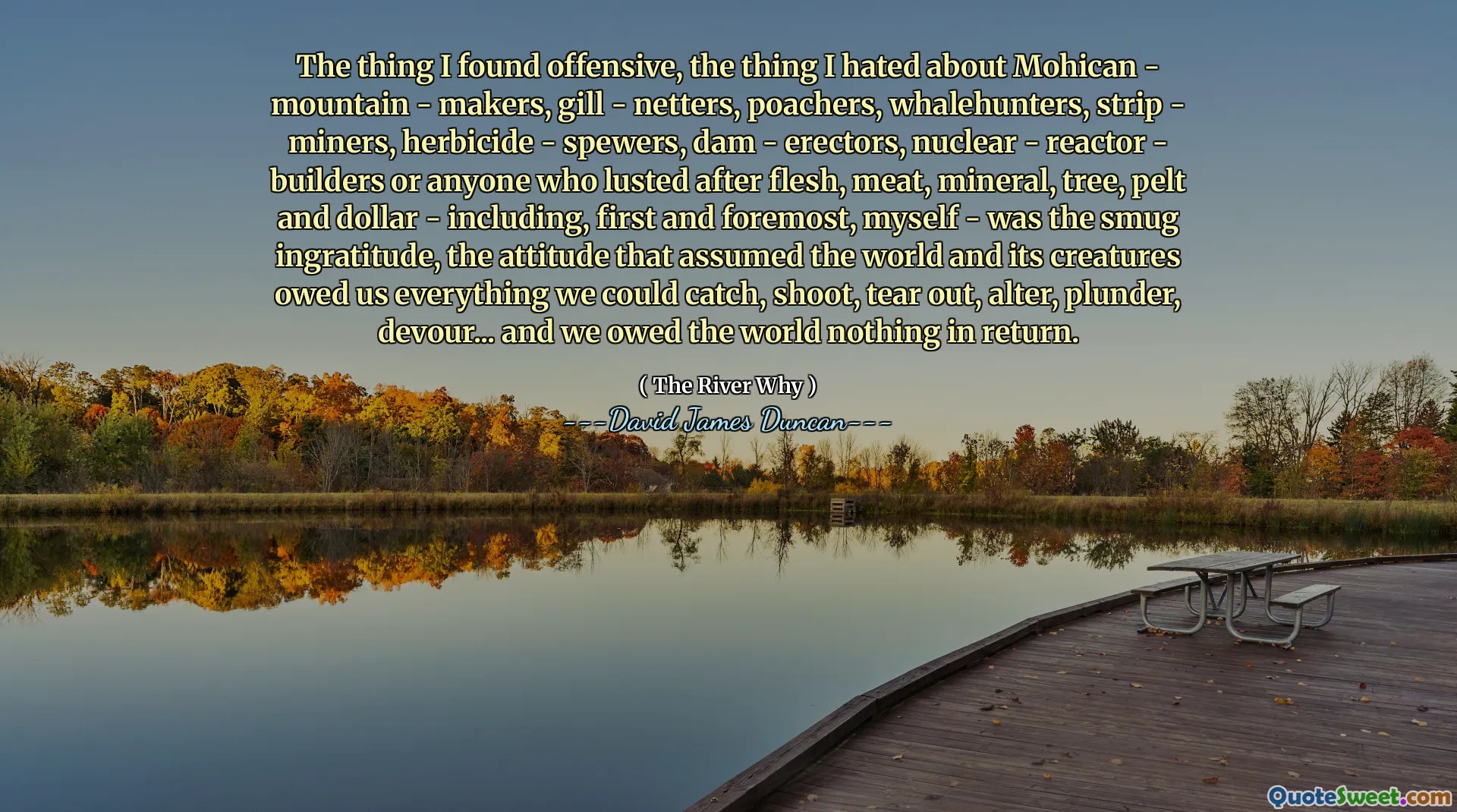
The thing I found offensive, the thing I hated about Mohican - mountain - makers, gill - netters, poachers, whalehunters, strip - miners, herbicide - spewers, dam - erectors, nuclear - reactor - builders or anyone who lusted after flesh, meat, mineral, tree, pelt and dollar - including, first and foremost, myself - was the smug ingratitude, the attitude that assumed the world and its creatures owed us everything we could catch, shoot, tear out, alter, plunder, devour... and we owed the world nothing in return.
[Markdown format] Throughout the quote, there's a profound critique of humanity's exploitative attitude toward nature and its resources. It highlights a collective arrogance—a smug ingratitude—forgetting that the world does not owe us our comfortable existence or the treasures we seek to take. The author emphasizes that those involved in environmental destruction—poachers, hunters, miners, builders of dams and reactors—are driven by greed and entitlement, disregarding the natural balance and their moral responsibilities. This perspective is both a reflection on personal guilt and a social commentary about the destructive patterns ingrained in human behavior. It challenges us to scrutinize our own roles and habits that contribute to ecological degradation. The mention of specific activities—whale hunting, strip mining, herbicide use—serves as stark examples of humanity's relentless pursuit of profit and progress at the expense of nature's welfare. What resonates deeply is the acknowledgment that even those who act out of greed—myself included—are complicit in this harmful cycle. The quote invites a sobering realization that our relationship with the environment is rooted in a sense of entitlement rather than stewardship. It calls for a shift in attitude, cultivating humility, gratitude, and responsibility toward the earth and its myriad creatures. Recognizing this is the first step toward meaningful change, urging each of us to reconsider the true cost of our actions and to rebuild a respectful, sustainable rapport with the natural world.
*Book: '(The River Why)' *Author: 'David James Duncan'






